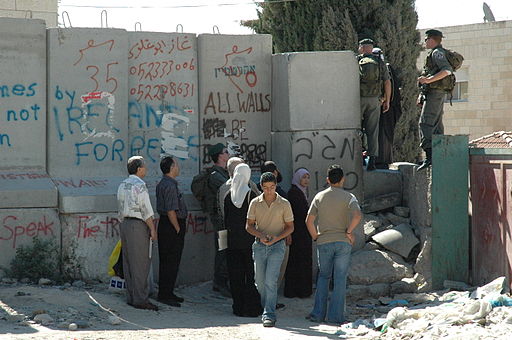
March 28, 2017; JTA
In September of last year, NPQ reported on a rare case related to a donor-advised fund (DAF). The Jewish Community Foundation refused to release a grant recommended by Lisa Greer, a donor advisor, to IfNotNow, a progressive group of young Jewish activists that advocates against the occupation of the West Bank. Greer was taken by surprise by the refusal; that’s just not how things are done in the world of DAFs.
While the donor does formally give the grant to the institution holding the fund, in almost all cases to date they have been allowed to maintain a controlling hand over where grants are made, given that certain very basic legal requirements are met. But that informal yet prevalent practice may be beginning to unravel a bit as transparency is forced on the field.
Now, JTA reports that some Jewish federations holding donor-advised funds are being scrutinized for the politics of the groups they fund. It reports that the nonprofit group Jewish Voice for Peace (JVP) has just released a report that enumerates the grants given through DAFs with Chicago’s federation-affiliated foundation, the Jewish United Fund/Jewish Federation of Metropolitan Chicago (JUF), to two groups that JVP characterizes as Islamophobic. These two organizations, the Middle East Forum and the Investigative Project on Terrorism, received almost $800,000 between 2011 and 2014.
“If their only basis for who they give money to is whether it’s legal, they need to stop saying they stand together against all forms of hate,” said Michael Deheeger, one of the JVP report’s co-authors, about the Chicago federation. “They still retain total discretion over whether to let money go to these organizations. They can stop this today.”
The federations have added donor-advised funds to their offerings, hoping to retain wealthy families who wanted more say in where their donations go. But unlike money management firms like Fidelity and Vanguard offering such funds, the federations say they are values-driven.
Andrés Spokoiny, CEO of the Jewish Funders Network, says that the solution is not to avoid the mechanism but to have the conversations that are being called for. “What are normative positions for the Jewish community?” he asked. “What are the limits of public discourse? It’s a debate that’s full of gray areas and the goalposts keep moving. The solution to that is to have an honest and open conversation in each community.”
That may be easier said than done, since DAFs are traditionally hidden from public view. “It’s the donor’s money sitting at JUF, and very wide latitude is then given to the donor,” said Jay Tcath, executive vice president of the Chicago-based Jewish United Fund. “Which is why there are groups on the right that are going to be funded that antagonize the left, and groups on the left we fund.”
Jewish Voice for Peace is calling for the Jewish United Fund to establish a policy that prohibits making grants to groups that promote an anti-Islam stance. JVP says that between 2011 and 2014, $750,000 in grants were made through that federation’s DAFs to the Middle East Forum, included by the Southern Poverty Law Center (SPLC) on a list of anti-Muslim extremist groups, and $26,000 was released to the Investigative Project on Terrorism, also on the SPLC list.
Sign up for our free newsletters
Subscribe to NPQ's newsletters to have our top stories delivered directly to your inbox.
By signing up, you agree to our privacy policy and terms of use, and to receive messages from NPQ and our partners.
“If they want to cast such a big tent that it puts them in the position of funneling money to hate groups, they need to stop positioning themselves as speaking on behalf of the entire Chicago Jewish community,” Deheeger said.
Tcath says that while appearance on the SPLC’s list could be grounds for reexamination as appropriate grantees, JUF would not disqualify a group based solely on a few offensive statements made by their founders:
Any bigotry is against our values and interests, but it is not for certain that everybody would really agree with that characterization of the Southern Poverty Law Center. Are they serving the noble goals on which their mission statement is based? If that is the case, then we’re not going to stop the donors’ requests to the group because of this or that statement.
They do, however, draw the line at groups that advocate violence toward or expulsion of Arabs from Israel. Neither would they facilitate funding for groups advocating boycotts of Israel. This constellation of statements comes across as less than clear.
Will all of this drive donors away from the foundation-based DAF as a vehicle for giving? Lisa Greer reflects on her own experience.
After being denied by the L.A. community fund, Greer gave her donation directly to IfNotNow. In the months since, she has kept her money in the donor-advised fund, noting her support of most of the organization’s work in the Jewish community. But she’s looking for a more progressive home for her philanthropy.
“If I can get a little bit of money back to the Jewish community through that 1.5 percent, it’s a good thing,” she said, referring to the percentage of each gift that goes to the Jewish Community Fund. “But I’m actively looking for an alternative, and if an alternative presents itself, or if I were given money to create an alternative, I would do it in a heartbeat.”
—Ruth McCambridge












